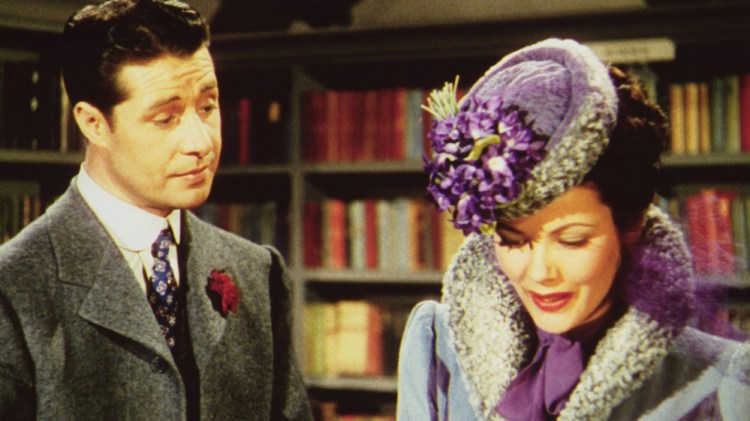My greatest joy in being part of the annual Maine International Film Festival is being able to not only bring you fresh cinematic gems, but also re-introduce a few of the great “oldies” of Hollywood and Europe’s fabled past. These are gems that these old eyes enjoyed as a boy and have treasured all of life.
“Heaven Can Wait” is one of them.
Of all the German expatriates to flee the Nazi boot and come to Hollywood, and there were many, Ernst Lubitsch was considered to be at the top of the list of great filmmakers. His films were among the most romantic, full of heartbreak, love, romance: Greta Garbo in “Ninotchka,” Jimmy Stewart and Margaret Sullavan in “The Shop Around the Corner.”
But his most American was the wonderful, delicious 1943 “Heaven Can Wait,” not to be confused with Warren Beatty’s wacky comedy about a dead football player.
Lubitsch’s “Heaven” deals again with death but on the lighter side, if death has one, where luck plays a hand and naturally all the deceased are beautiful and charming.
In Lubitsch’s romantic pastiche written by his longtime cohort Samson Raphaelson, two great stars of the ’40s, Don Ameche and the beautiful Gene Tierney, play the romantic leads. And in the ’40s, romance was truly romantic, full of that once-upon-a-time gorgeous Technicolor, splendid sets, lavish costumes and a melange of the greatest characters Hollywood could offer: Signe Hasso, Allyn Joslyn, Charles Coburn, Spring Byington, Eugene Pallette and the wonderful Marjorie Main.
Lubitsch lets the star Don Ameche (remember his Alexander Graham Bell?) playing the wealthy Henry Van Cleve tell the story of his life, from newborn to precocious spoiled teen (child star Dickie Moore, who grew to marry songster/actress Jane Powell).
At 21, Henry is introduced to the glorious Martha Strabel, daughter of a wealthy and landed farmer from the Midwest (the implacable Eugene Pallette). Martha is betrothed to Henry’s stuffy, boorish cousin (Allyn Joslyn), but Henry proceeds to sweep her away to wed her.
Through their long marriage, Henry cannot give up his passion for flirtation and string of flings with Broadway show girls. The marriage passes through the gay ’90s and dances into the roaring ’20s to its conclusion in the dour 1940s, each period beautifully enhanced with stunning Technicolor and great music by the patriarch of Hollywood’s brilliant musical family, Alfred Newman.
We watch Henry’s adulterous flirtations pass to his grown son, who has inherited his daddy’s gift for temptations, and then into his doddering final moments as an aging Henry tries to charm his night nurse (Doris Merrick). The best part of the movie is the last, which actually begins the film, as the dead Henry arrives by elevator at the foyer and gates of Hell. There he meets and is interviewed by one of Moviedom’s most charming and “devilish” Satans, here known as “His Excellency,” the great character actor Laird Cregar (“The Lodger,” ” Blood and Sand”). Satan listens to Henry’s guilt trip through life and then announces his decision to Henry, who fully expects to be dropped through the flaming trap door.
But His Excellency has his own plans for the ending of Henry Van Cleve’s passing, and it’s yours to enjoy.
Thomas Little’s sets are chock full of splendid costumes and gorgeous antiques, all treated like the jewels they are by the gifts of cinematographer Edward Cronjager, who did Fred Astaire’s and Ginger Rogers’ musical “Roberta.”
It must be obvious that this “Heaven” is one of my personal favorites, one I’ve enjoyed since I first was hypnotized by it when, as a boy, I saw it at the fabulous Fox movie theater in St. Louis in 1944. You might have seen it on Turner Classics, but you really didn’t. You’ll know what I mean when it opens here.
J.P. Devine, a Waterville writer, is a former stage and screen actor.
Send questions/comments to the editors.




Comments are no longer available on this story